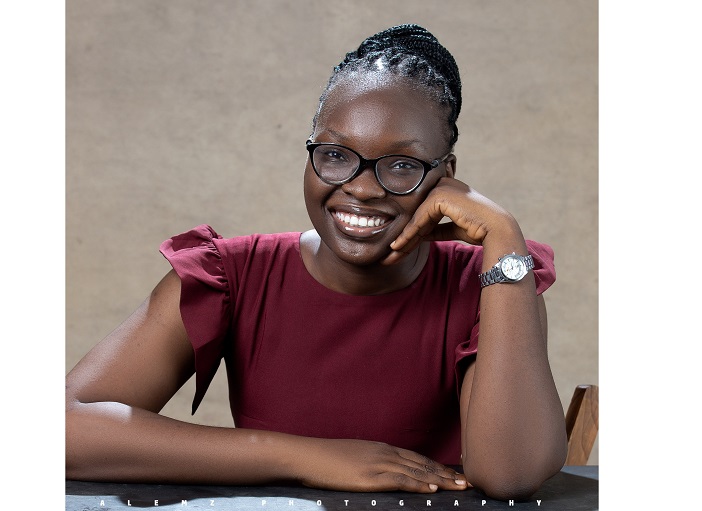Bukola Oyelade, a woman in her early 20s, hopes to make a difference in her country, although her patriotic drive is limited by her scant knowledge about national politics, which she admits to not knowing much about.
But Oyelade is not alone. One study indicates that a great deal of Nigerians do not understand how politics and governance work in the country, further widening the rift between the government and the governed. Because of this, many citizens are unable to speak against bad governance or demand accountability from their elected politicians.
In the same vein, the study also reveals that political education in Nigeria is often a one-way channel and is often basic. Without any pragmatic approach, the subject of political education in Nigeria doesn’t quite train citizens for community development. In recent times, Learn Politics, a Nigerian non-profit founded by Victoria Oladipo has committed to bridging the gap in political knowledge among the citizenry.
Oladipo draws on a wealth of knowledge in political science and international relations to impart knowledge for national development. She was spurred to start the outfit following a wave of outrageously incorrect views popular on social-media platforms during the election years. Stumbling into one of these misleading views on her X timeline became the spark to start Learn Politics, which continues to fight against political misinformation on social media.
“A lot of people were also in agreement with the tweet through the number of retweets and likes the post had and it became a deep worry for me. An average young Nigerian adult should know details, if not all, but specific ones about Nigerian history. It became a reason to want to democratize political education and get the understanding of young adults,” Oladipo said.
Oladipo’s interest in politics began during a teachers’ strike in the late 1990s, only 8 at the time and struggling to grasp the reasons behind the industrial action. The events of that political dispensation ignited a yearning for politics within her about governance and political leaders.
This girlhood passion would only deepen into a lifelong ambition, leading her to bag a degree in political science, as Oladipo recounted. An additional stint in international relations further enriched her understanding of political systems, inspiring her passion for positive national impact.
“I just want a Nigeria where people can have political conversations with an in-depth understanding of what they are talking about in concepts, theories and meanings,” she said.
In 2023, Victoria established Learn Politics to tackle political misinformation in Nigeria, underscoring her enduring commitment to foster an informed citizenry and promote transparency among leaders.
Determined to reach 2 million young Nigerians by 2030, Learn Politics adopts public lectures, grassroots campaigns, including curating content on X and Instagram. More often than not, lessons are delivered through tweets and Instgaram posts, with occasional training sessions on Google Meet.
In one of its preliminary courses titled Introduction to Politics, the edupolitical outfit exposes learners to basic theories as an overview of the world of politics. The course is integrated into 6 modules, all of which participants are assessed before moving on to the next.
Interested individuals are recruited into a group of volunteers to assist with delivering the courses as well as running the social media channels. At present, Oladipo has a team of 22 volunteers helping to propagate digestible political education to a broad audience.
Despite being relatively new, Learn Politics has received a remarkable audience. Through its regular Twitter spaces, it has engaged with 659 people, fostering political discussions and disseminating the right data about national politics. Additionally, it has conducted workshops, reaching out to 85 individuals with hands-on learning training.
But there is more. Its work extends beyond mere participation numbers, as 9 individuals have recently completed an inaugural training in Introduction to Politics. Likewise, its social media content has had significant traction, now reaching nearly 5,000 people, as the outfit continues to democratize political knowledge.
“We hope that this platform will shape political conversations and help in voting better leaders and making better citizens through knowledge,” Oladipo told Prime Progress.
Through personal funds and donations from friends, Oladipo keeps the outfit running while raising a breed of young, informed citizens poised for good governance and accountability.
Learn Politics is, however, confronted with financial strains. “Our core challenge is the execution of all our ideas without funds,” Oladipo explained.
As a young organization with a long-term vision, Learn Politics aims to enhance the learning experience for the course participants. However, Victoria acknowledged the challenges to the platform’s expansion, especially offline trainings, posed by limited resources.
This restraint is in addition to the obvious challenges stemming from culture, where women are exempted from participating in political discussions. Victoria remains poised to continue her knowledge campaign regardless.
Looking ahead, she envisions expanding Learn Politics to a bigger educational platform for citizens such as Bukola Oyelade, with adequate exposure to political systems around the world, thereby fostering a more informed and empowered citizenry.
Bukola Oyelade, a young Nigerian woman, represents a broader lack of political knowledge in Nigeria, which hinders democratic engagement. A study revealed that many Nigerians do not understand politics, limiting their ability to demand accountability from their leaders. Political education in Nigeria is often basic and unidirectional.
Victoria Oladipo founded Learn Politics, a non-profit, to bridge this knowledge gap. Motivated by misinformation on social media during election years, Oladipo aims to foster informed political conversations. Learn Politics conducts public lectures, grassroots campaigns, and social media content to educate young Nigerians about politics. It uses structured courses and volunteers to deliver digestible political lessons.
The initiative has engaged with hundreds of people through workshops and social media, and aims to reach 2 million young Nigerians by 2030. Despite financial challenges, Oladipo remains committed, envisioning an expanded platform that empowers citizens with in-depth political knowledge to enhance governance and civic participation.






